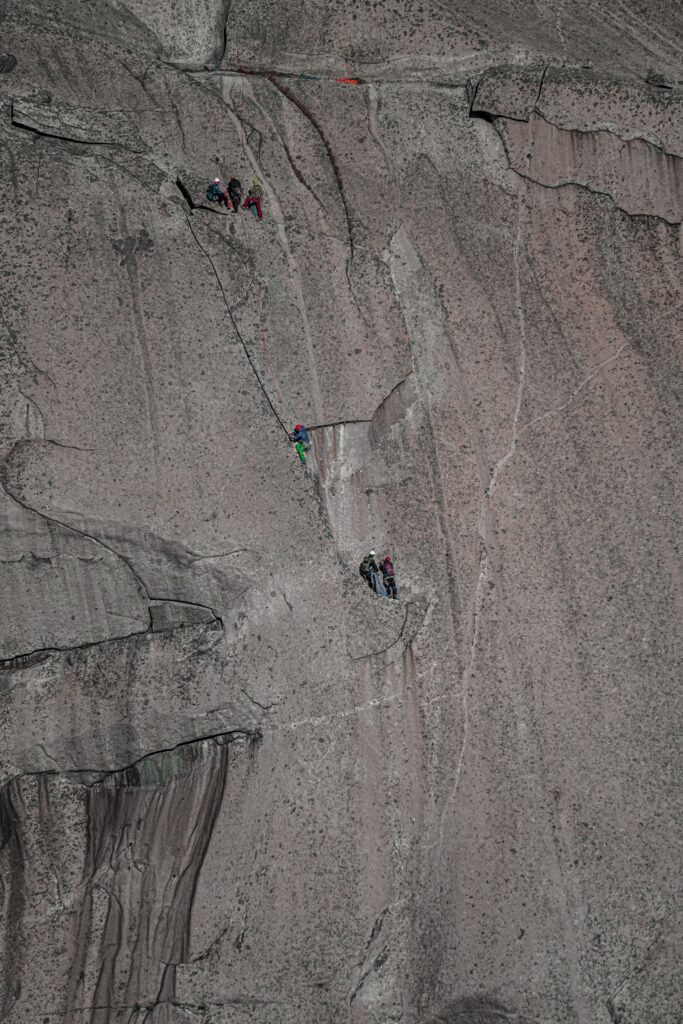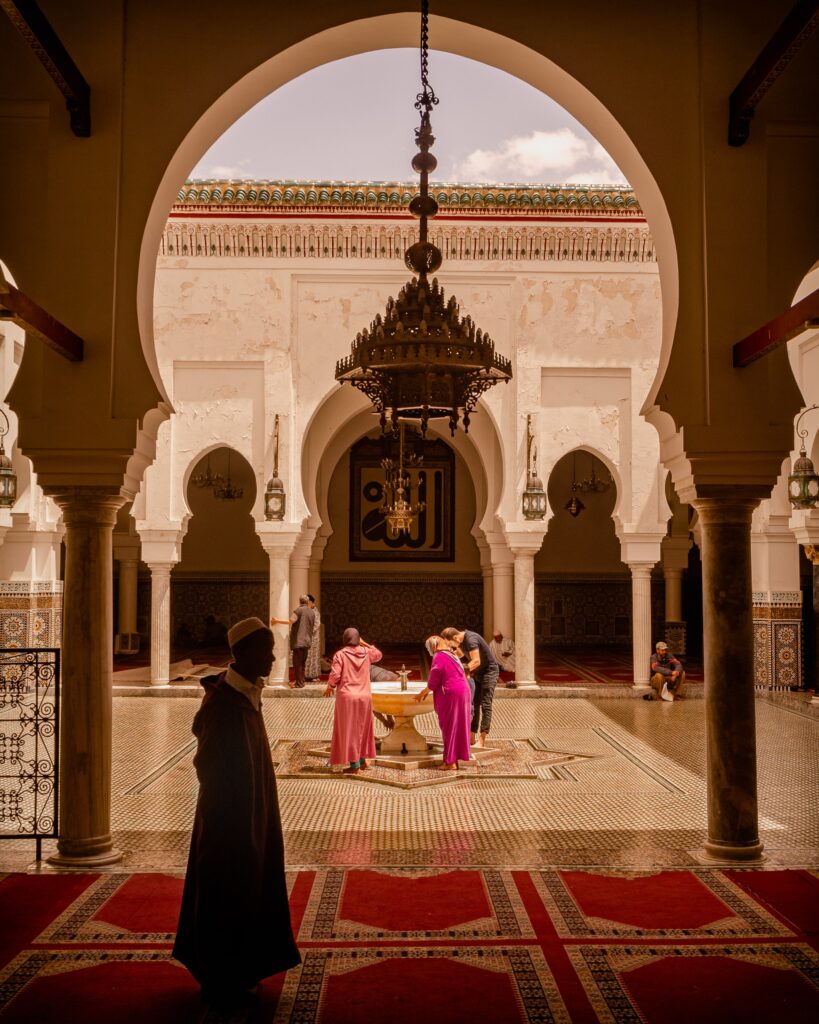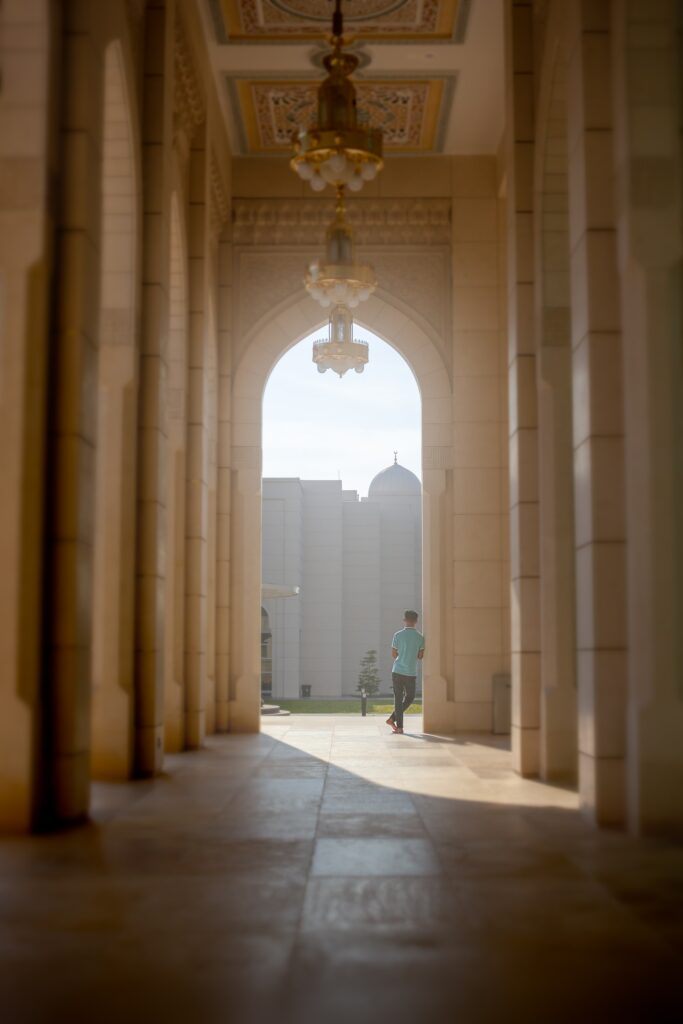The story of the Prophet (PBUH) is a story of transformation.
In 23 years, an individual and societal transformation took place in the middle of nowhere.
We can’t appreciate this unprecedented change unless we look for something similar.
There is none.
Many tried to change individuals and societies that fast.
Either it doesn’t last, or it leads to disaster.
The French and Russian revolutions are great examples of disasters.
The Prophet (PBUH) succeeded in connecting the creatures with their Creator.
He unified people from different languages and races under the same spiritual flag.
Because of 23 years, the map of the world changed, empires were born, sciences advanced.
Never has man accomplished such a long-lasting revolution.
How he did this?
By applying two things we rarely hear about in Islamic teachings: hierarchy and pace.
The challenge of being a Muslim today
An unattractive religion

We come to live in a world where the Quran has been revealed entirely and where we can’t meet the Prophet.
If you are in a Muslim environment, most likely you’ll hear first about the obligations and prohibitions.
You’ll also hear that good Muslims lived in the past and that your chances to make it to heaven are close to zero.
God is reduced to an angry figure just looking to punish you.
And when looking for guidance, all you see is Muslims divided into groups, each one of them claiming to be the defender of ‘true Islam’.
Preachers are disconnected from the difficulties Muslims are facing, thus making Islam irrelevant to solve their everyday problems.
Does it sound like an attractive religion?
Something is missing!
If Islam is still alive, it’s thanks to Allah’s will.
We can’t say we did a good job in marketing our religion.
If your reality is different from what I described, I’m happy for you.
If it’s not, don’t give up.
There are still out there many Muslims- ordinary people or scholars, that make us feel in love with this religion.
And most importantly, you can turn to Allah at any moment, in any language.
Didn’t He say:
“As for those who struggle in Our cause, We will surely guide them to Our ways.”
[Quran 29:69]
But what is missing to give back Islam its attractiveness and its power to transform individuals and societies in a good way?
The methodology of the Prophet
No randomness in teaching

I would argue that nothing is missing in Islam.
The ingredients to succeed in this life and the hereafter are still there.
Islam hasn’t changed.
We changed to the point that Muslims can’t stand each other.
We changed to the point that many think the world would be a much better place without Muslims.
I know, it hurts.
It would be too simple to designate one reason and say it’s the cause of everything.
But what I’m more interested in, it’s how to reverse the situation.
The teaching of the companions wasn’t random, neither it came in one block.
If Allah wanted to, He could just drop an entire book from the sky.
Or the Prophet (PBUH) would walk around with a list of dos and don’ts.
Again, it’s about hierarchy and pace.
Hierarchy and pace

Hierarchy and pace are the same words for the process over time.
Or the urgent and important come first.
Let’s take for example the tarawih (Ramadan night prayers) and the daily five prayers.
The first one is not mandatory. It’s an enhancement of our faith.
The second one is a fundamental obligation.
In the hierarchy of importance, we place the second before the first.
Pace and hierarchy are closely related.
Actually, pace follows hierarchy.
For instance, alcohol is considered the work of the devil in the Quran. Yet, it wasn’t prohibited from the beginning of the revelation.
The transformation pace of the companions followed an hierarchy of importance.
What was the method of the Prophet?

The method of the Prophet is encapsulated in one verse:
“He is the One Who raised for the illiterate people a messenger from among themselves—reciting to them His revelations, purifying them, and teaching them the Book and wisdom, for indeed they had previously been clearly astray.”
[Quran 62:2]
The Prophet (PBUH) introduced the companions to Allah and His miraculous signs.
If we think about it, it’s a logical starting point.
How can we submit to God if we don’t even know Him?
Then he purified them with constant reminders.
Purification removes arrogance, greed, pride, and materialism from the hearts so they can connect with their Master.
Only then they were ready to hear about the law and the wisdom.
This is how the companions ended up with beliefs, rituals, and manners connected to the ultimate source.
They remain, to this day, a great source of inspiration.
How the Prophet transformed the companions from the Quran?

The methodology of the Prophet is in the Quran.
Allah paced the revelation. The Prophet (PBUH) followed the hierarchy of teaching.
Comprehensively and holistically, the companions were taught the belief in Allah, worship, the code of conduct, the origin of man, the universe, life, the civilizations…
All these matters are accessible to all of us in the book of Allah.
Knowing Allah
“With Him are the keys of the unseen—no one knows them except Him. And He knows what is in the land and sea. Not even a leaf falls without His knowledge, nor a grain in the darkness of the earth or anything—green or dry—but is written in a perfect Record”
[Quran 6:59]
“If all the trees on earth were pens and the ocean were ink, refilled by seven other oceans, the Words of Allah would not be exhausted. Surely Allah is Almighty, All-Wise.”
[Quran 31:27]
The Creation
Ask them, O Prophet, “How can you disbelieve in the One Who created the earth in two Days? And how can you set up equals with Him? That is the Lord of all worlds.
[Quran 41:9]
“He placed on the earth firm mountains, standing high, showered His blessings upon it, and ordained all its means of sustenance—totaling four Days exactly—for all who ask.”
[Quran 41:10]
“We will show them Our Signs in the universe, and in their own selves, until it becomes manifest to them that this (the Quran) is the truth”
[Quran 41:53]
The reality of life
“And give them a parable of this worldly life. It is like the plants of the earth, thriving when sustained by the rain We send down from the sky. Then they soon turn into chaff scattered by the wind. And Allah is fully capable of doing all things.”
[Quran 18:45]
“Wealth and children are the adornments of this worldly life, but the everlasting good deeds are far better with your Lord in reward and in hope.”
[Quran 18:46]
The origin of humans, their weak nature, and their enemy
“And We have certainly created you, [O Mankind], and given you [human] form. Then We said to the angels, “Prostrate to Adam”; so they prostrated, except for Iblis. He was not of those who prostrated.”
[Quran 7:11]
“[Satan] said: Because You have put me in error, I will surely sit in wait for them on Your straight path. Then I will come to them from before them and from behind them and on their right and on their left, and You will not find most of them grateful [to You].”
[Quran 7:16-17]
They replied, “Our Lord! We have wronged ourselves. If You do not forgive us and have mercy on us, we will certainly be losers.”
[Quran 7:23]
View on the other creatures
“All living beings roaming the earth and winged birds soaring in the sky are communities like yourselves. We have left nothing out of the Record. Then to their Lord they will be gathered all together.”
[Quran 6:38]
“The seven heavens, the earth, and all those in them glorify Him. There is not a single thing that does not glorify His praises—but you simply cannot comprehend their glorification. He is indeed Most Forbearing, All-Forgiving.”
[Quran 17:44]
Linking the belief in Allah and conduct
“Successful are the believers. Those who are humble in their prayers. Those who avoid nonsense. Those who work for charity. Those who safeguard their chastity. Except from their spouses, or their dependents—for they are free from blame. But whoever seeks anything beyond that—these are the transgressors. Those who are faithful to their trusts and pledges. Those who safeguard their prayers. These are the inheritors. Who will inherit Paradise, wherein they will dwell forever. “
[Quran 23:1-11]
“The true servants of the Most Compassionate are those who walk on the earth humbly, and when the foolish address them improperly, they only respond with peace. “
[Quran 25:63]
Connecting with Allah through night prayers
“Are they better or those who worship their Lord devoutly in the hours of the night, prostrating and standing, fearing the Hereafter and hoping for the mercy of their Lord? Say, ˹O Prophet,˺ “Are those who know equal to those who do not know?” None will be mindful ˹of this˺ except people of reason.”
[Quran 39:9]
The reward
“Surely those who recite the Book of Allah, establish prayer, and donate from what We have provided for them—secretly and openly—can hope for an exchange that will never fail.”
[Quran 35:29]
“So that He will reward them in full and increase them out of His grace. He is truly All-Forgiving, Most Appreciative.”
[Quran 35:30]
The Book of Allah
“The Book We have revealed to you O Prophet is the truth, confirming what came before it. Surely Allah is All-Aware, All-Seeing of His servants.”
[Quran 35:31]
“Then We granted the Book to those We have chosen from Our servants. Some of them wrong themselves, some follow a middle course, and some are foremost in good deeds by Allah’s Will. That is truly the greatest bounty.”
[Quran 35:32]
Final thoughts

The method of the Prophet gives a blueprint on how to gradually become a better Muslim- hierarchy and pace.
Islam is an ocean standing on a few principles.
Even without having time to study Islam deeply, understanding the general principle can give us a solid foundation to build upon it.
The few principles of Islam are all about our relation to Allah- gratitude, patience, remembrance, reflection, consciousness.
This private relation we develop with Allah can be reinforced with the fundamental obligations and prohibitions.
Then we translate this combination of principles and fundamentals into the way we carry ourselves.
Just like we have a long-term plan for our careers, we can have a long-term plan with Allah.
Focus on a few things, try to do them well, move to the next level, and repeat the process.
By doing so, we can get far better results than if we try to apply everything at once.
I came to believe that we can’t be born Muslim, we become one.
And the way to do it is to start from the origin: knowing Allah.
Unfortunately, knowing Allah is the most overlooked part of our religion.
Article posted the 20 December 2020

